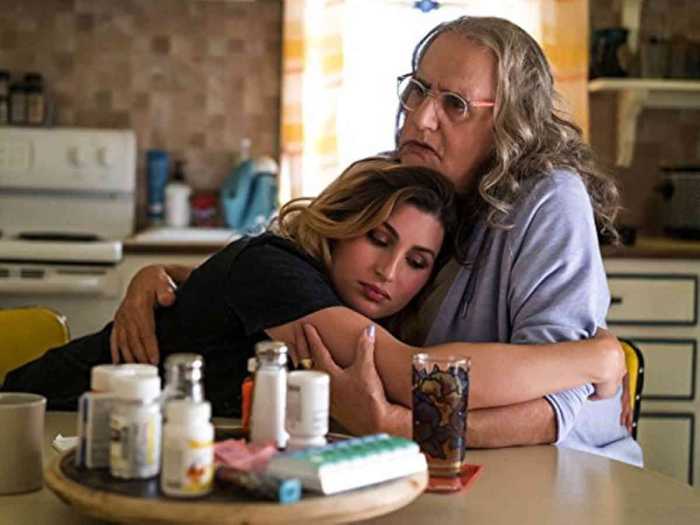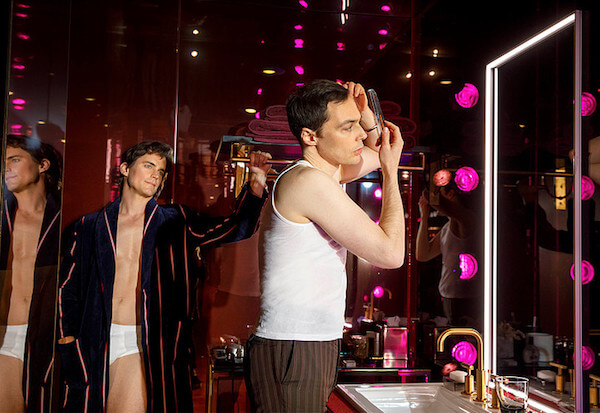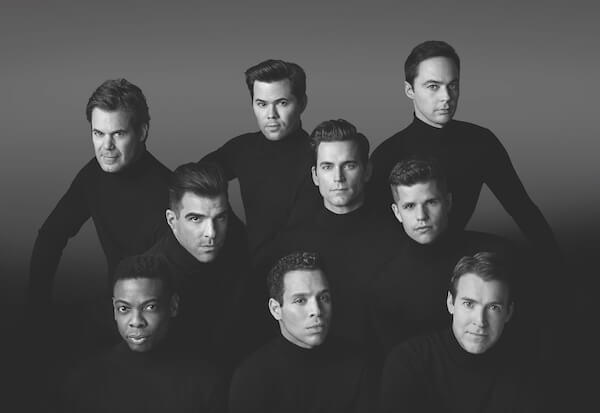Claire Danes, Leo James Davis, and Jim Parsons in Silas Howard’s “A Kid Like Jake,” adapted from the play by Daniel Pearle, opens at IFC Center on June 1. | IFC FILMS
In the compelling drama “A Kid Like Jake,” directed by trans filmmaker Silas Howard, Alex and Greg Wheeler (Claire Danes and Jim Parsons) grapple with having a gender non-conforming four-year-old son named Jake (Leo James Davis). Alex and Greg are anxious to get Jake into a competitive kindergarten and depend on the advice of Judy (Octavia Spencer), a preschool director who thinks Jake’s attributes can help him. However, Alex is especially sensitive to how others talk about her son. At various turning points that help or hurt Jake’s chances, the couple is forced to confront their feelings about their son and each other.
Working from a screenplay by Daniel Pearle, who adapted his play, Howard avoids the pitfalls of making “A Kid Like Jake” mawkish. The filmmaker never judges the characters, presenting them with all their foibles, and generating real drama in increasingly more heated exchanges about gender.
Jim Parsons, Claire Danes struggle to do right in a gendered world
In a recent phone interview, Howard chatted with Gay City News about “A Kid Like Jake.”
GARY M. KRAMER: Let’s start with an icebreaker: What were you like as a child? Were you gender non-conforming?
SILAS HOWARD: I was a classic case. As a kid I was raised by my dad, and in the third grade I wore his Old Spice and the teacher wondered why I smelled like a guy. I was a bit of a tomboy. When I found punk rock, I realized I could look like a guy. I identify as queer and trans. I wanted to transition when there was more room in the queer community to transition.
GMK: There is a line in the film about encouraging our “true, authentic self.” I think Jake in the film is always himself. In the play, Jake is never on stage, but in the film he is a key and very visible character. Can you discuss that decision
SH: The story has an interesting take in that it isn’t about Jake, it’s the world around him — and I like the intentionality about that. Kids absorb so much at four so they are okay with themselves, and that’s where the world starts to intervene. One thing I loved about Daniel’s play was its connection points — that he was a gay man with a strong princess stage, and that Jake in the film has a lot of agency. It’s not about Jake. It’s about the parents losing sight of Jake; he escapes our frame for a bit.
An unseen character in a play is a traditional device. In a film it can be dystopic. We found that together as a team.
Leo, who plays Jake, is like Jake. I told casting that we don’t need Jake to carry the film, but he should be excited to wear a dress. I didn’t want to put a boy in the dress who didn’t want to be in a dress.
GMK: Jake is almost never seen without some form of feminine clothing. What decisions did you make about how to represent him?
SH: That was an interesting aspect — creating these roles and how Judy says he “builds worlds” and that is part of who he is. It’s linked; he’s not just putting on costumes. We used Leo’s real clothes. He had even more fabulous dresses.
GMK: I don’t think the film exploits Jake’s gender non-conformity, but Judy suggests it is “a card to play” in their kindergarten application. What do you think the film’s politics are?
SH: I think the politics of the film are pushing for messy, human honesty. The messiness is in that moment. No one is going to dress their kid in a dress to get into school. It’s painful to put your kid at risk. But the way this country commodifies otherness is what I am interested in. That’s a dangerous idea.
GMK: There are several uncomfortable discussions of gender in the film — from a dinner party to the meeting Alex and Greg have with Judy, to the couple’s big fight. How do you think “A Kid Like Jake” can help folks such as parents and friends better talk about gender?
SH: I really felt like what I responded to is that I have friends who parent who are queer, feminist, trans, etc., and I watch them go through something similar as Alex does at the Halloween store. This isn’t just blue state/ red state Republican/ Democrat thing. It’s hard to figure out! We’re quick to label, but we could do with a bit more ambiguity and openness. Seeing and supporting a kid as they are is not easy, as Judy says. I want people to be okay to be curious. People say the wrong things trying to figure them out. That gives us room to grow. I hope the film opens that up. I find gender confusing and that’s been the best thing about my journey.
A KID LIKE JAKE | Directed by Silas Howard | IFC Films |Opens Jun. 1 | IFC Center, 323 Sixth Ave. at W. Third St. | ifccenter.com



































